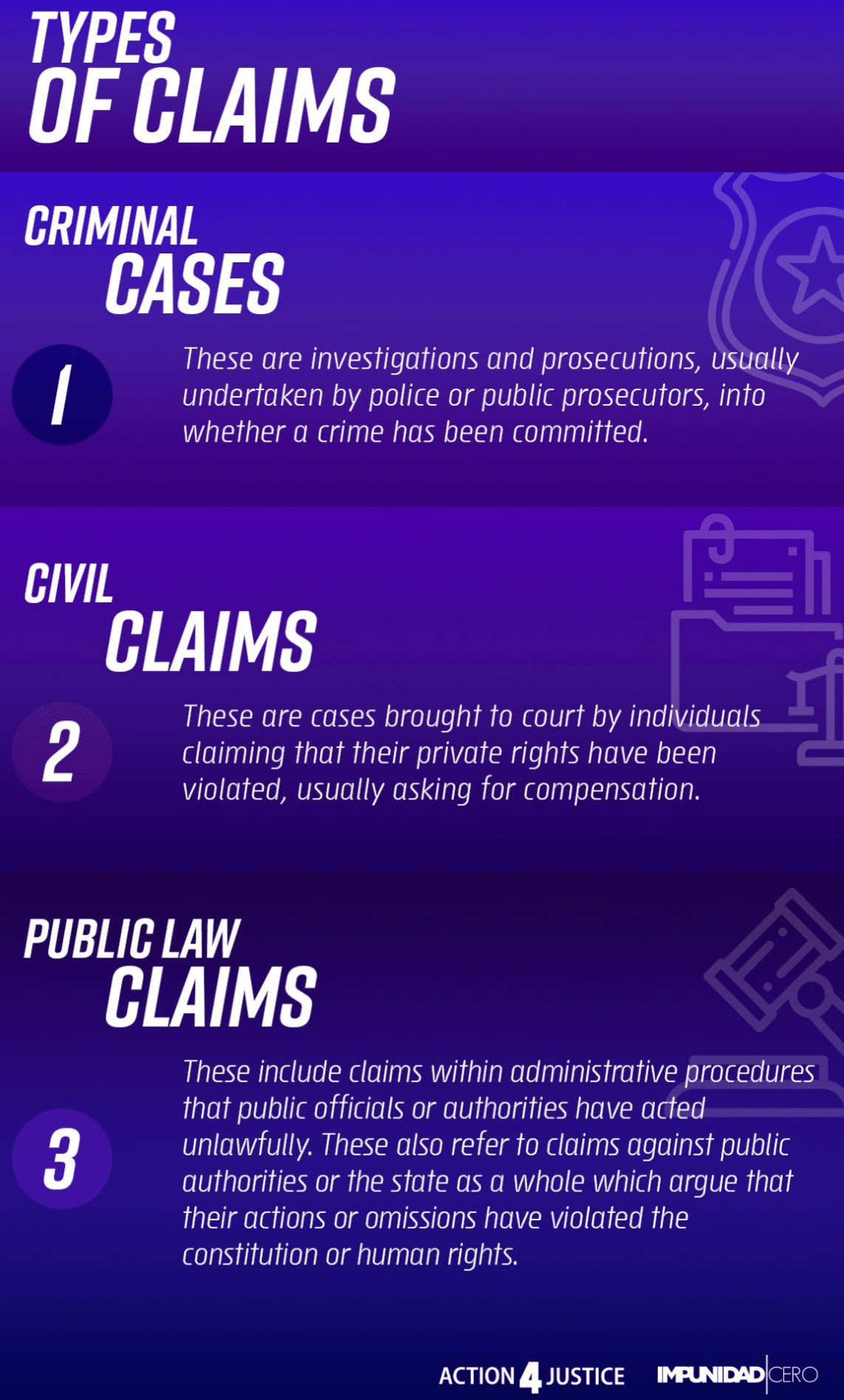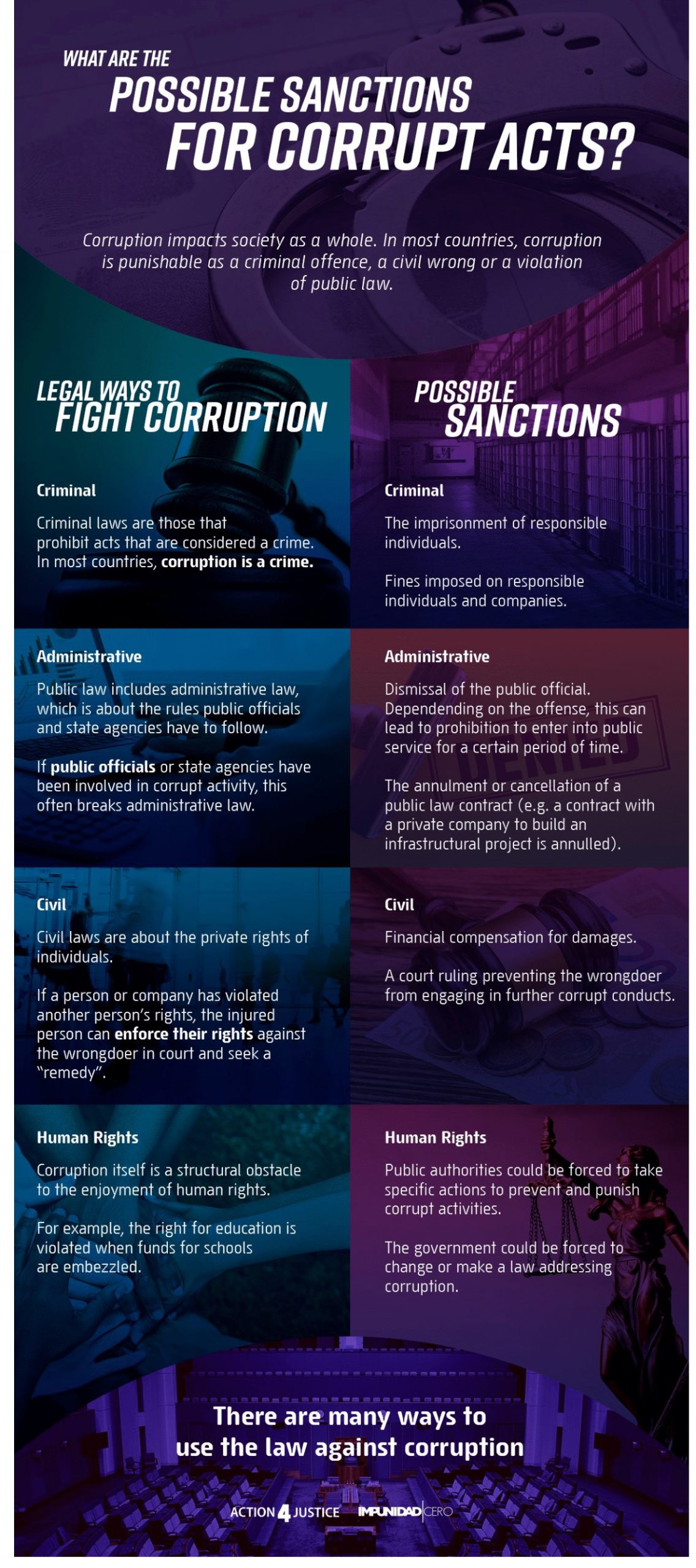What Types of Legal Action Can Be Taken to Challenge Corruption?
A further step to challenge corruption is to take legal action against the people or organisation involved in the corrupt act. A legal action is defined as the process of bringing a case to court and it can be through a lawsuit or prosecution. This Guide will now give you ideas and tips on how to use legal action to fight corruption.
When Could Legal Action Be Taken?
It is important to bear in mind the difference between reporting corruption and taking legal action against corruption. You, as an individual, can report corruption to the police or other investigative authority, a prosecutor, to an anti-corruption agency or to an regulatory body (see the sections above) and legal action can be taken on your behalf by the body receiving the report (eg. when you make a criminal complaint to a prosecutor and he or she starts investigating and take the case to court).
If you consider reporting corruption does not properly address the issue and does not help you to achieve your objectives (e.g. getting compensation, punishment of the wrongdoer, and holding the government and others accountable) you may still need to take legal action independently in court. For that purpose, you can get support from a lawyer or a CSO.
ALSO, reporting corruption and legal action can be complementary. The evidence you gather when reporting corruption and the findings of any investigation could be used as evidence in a later legal claim.
Practical Tip:
If you want to take a legal case to court against the public authority or company that is responsible for the individual wrongdoer, it is useful to show that they have been made aware of the corrupt activity or should have been aware as required by law and could do something about it, but neglected to do so. This could strengthen your case.
What Types of Legal Action Could Be Taken?
There are many different ways to challenge corruption. This Guide will go through the following examples:

In relation to each of these options, the Guide will help you answer the following questions:
- What are the relevant laws?
- Who can take legal action?
- Who can legal action be brought against?
- What evidence do I need?
- What procedural steps do I need to take? and
- What happens if I win?
- What are my costs risks?
There are different possible sanctions for corrupt acts, depending on the legal avenue taken:

Get Support
Legal action is time-consuming and costly if you are trying to take it on your own. In general, it is best to:
- Report the corrupt act to a body that could take legal action on your behalf; or
- Report the corrupt act to an organisation that could support you to take legal action.
For information on how to finance legal action, see How Can I Finance My Action?